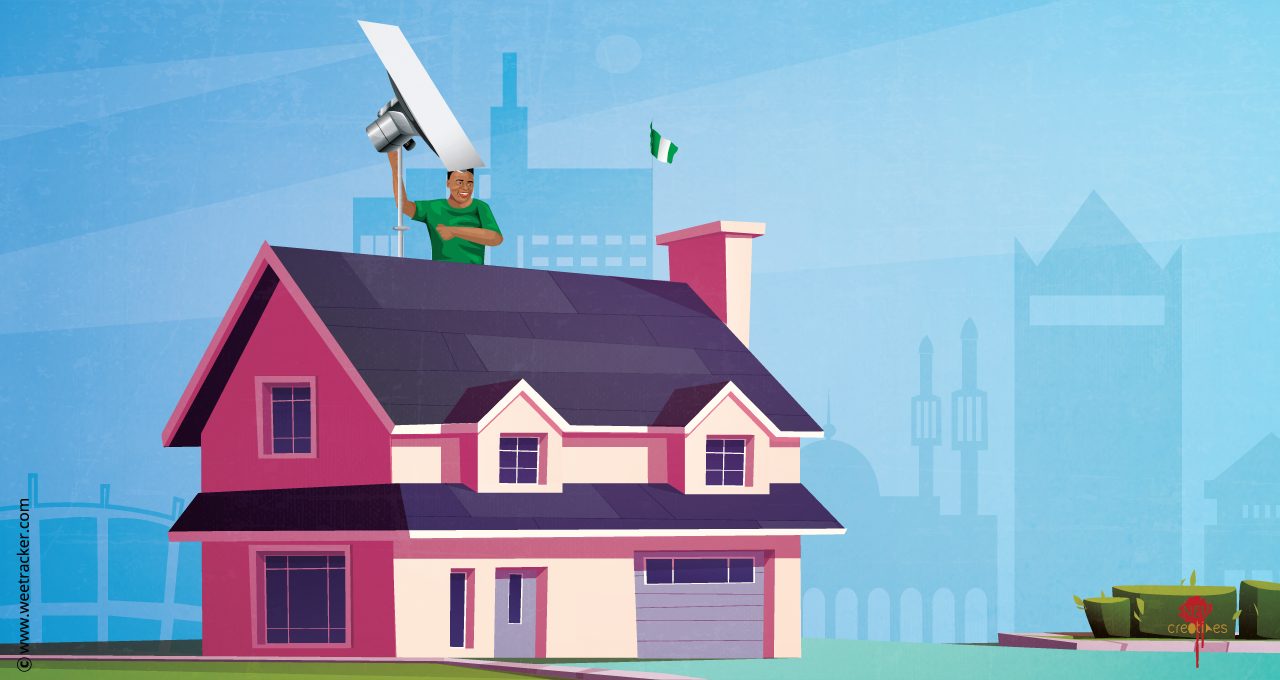Africa’s Top Telcos Scramble To Cover Their Flanks As Starlink Encroaches

Africa’s telecommunications giants are gearing up for an unprecedented challenge as Starlink, the satellite internet upstart owned by famous tech billionaire Elon Musk, continues its aggressive expansion across the continent. Starlink’s promise of fast, reliable internet access, especially in remote areas, has sparked both excitement and concern, leaving traditional telcos scrambling to safeguard their turf.
Safaricom, Kenya’s largest mobile operator, is one of the most vocal players, recently stepping up its game in response to Starlink’s entry. In July 2023, Starlink began offering internet services in Kenya, rapidly signing up over 4,000 customers within a year.
To counter this, Safaricom has doubled the speeds of its fibre internet packages, with offerings such as 15 Mbps for KES 3 K (USD 23.00), up from 10 Mbps, and a massive increase of its 100 Mbps package to 500 Mbps, priced at KES 12.5 K (USD 97.00). Furthermore, Safaricom became the first ISP in Kenya to offer gigabit speeds, at KES 20 K (USD 155.00).
“We have enhanced our Home Internet speeds to meet the increasing demand and usage, providing reliable connectivity and enhanced value for our customers,” Safaricom CEO Peter Ndegwa noted in a statement. The move is being perceived as a response to Starlink’s market disruption, with its affordable and faster satellite services posing a significant threat to traditional ISPs and telcos.
Starlink offers speeds up to 200 Mbps in Kenya for KES 6.5 K (USD 50.00), a rate that undercuts many local providers. Additionally, its 50 GB package at KES 1.3 K (USD 10.00) and hardware rental option for those who cannot afford to purchase the KES 45 K equipment outright has further boosted its appeal. These offerings have made Starlink particularly attractive to underserved rural areas, where existing infrastructure is limited or non-existent.
Most recently, Starlink introduced a cheaper kit and a USD 30.87 monthly residential plan in Kenya, just days after Safaricom upped its speeds, taking the battle with the telecom heavyweight even further.
However, Safaricom’s response to Starlink is not limited to upgrading internet speeds. The company has petitioned Kenya’s Communications Authority to introduce stricter regulations for satellite providers like Starlink. Safaricom has argued that satellite operators should be required to partner with local mobile network operators instead of operating independently.
The telco, which has invested heavily in local infrastructure, raised concerns about the accountability and compliance of satellite services that lack a physical presence in the country. “We believe the regulator should ensure a level playing field,” a Safaricom spokesperson implied in its communication to the government.
These sentiments are echoed beyond Kenya. Telecom companies in Zimbabwe, Nigeria, and Cameroon have expressed similar frustrations over Starlink’s free rein, accusing it of unfair competition.
Starlink’s ability to enter markets without building out the expensive physical infrastructure required for traditional networks has stirred unrest among operators who have invested millions of dollars in laying cables and building mobile towers. In Zimbabwe, Starlink’s arrival led ISPs like Liquid Home, the largest fixed ISP, to slash prices, while state-owned TelOne partnered with Eutelsat’s OneWeb to offer satellite internet in a bid to fend off competition.
The broader African market is seeing a similar shake-up. In Nigeria, within two years of launching, Starlink became the country’s third-largest dedicated internet provider. It has built new ground stations across three Nigerian states and partnered with Africa Mobile Networks to provide satellite backhaul to over 100 rural base stations. Meanwhile, Starlink’s monthly pricing and flexible hardware rental options continue to attract customers from both rural and urban regions.
Yet, telcos are not backing down without a fight. In Zimbabwe, TelOne and other providers are racing to deploy competing satellite internet services, while in Kenya, Safaricom is offering new bundled family plans, combining mobile data, SMS, voice, and home internet at a discount. These packages, which can be shared among five family members, are aimed at adding value in ways that Starlink’s satellite-only service cannot replicate.
Analysts predict that the competitive pressure from Starlink and other Low Earth Orbit (LEO) satellite providers like OneWeb and Telesat will only grow. Starlink’s appeal lies not only in its speed but also in its ability to offer services to areas where traditional networks have struggled. However, while Starlink’s model of bypassing the need for physical offices and large-scale infrastructure may seem ideal, it does present a challenge for governments, particularly regarding tax revenues and regulatory oversight.
In spite of that, with interest in Starlink’s potential to bridge the digital divide, it appears that its footprint in Africa will only grow. South Africa, for instance, is in talks with Musk to introduce Starlink after holding out initially, with Communications Minister Solly Malatsi stating, “They can fill in the gap that the mobile network operators are unable to currently fill through the limitations of their broadband infrastructure.”
Starlink’s future success on the continent will depend on how effectively it can scale and maintain affordable pricing in remote areas while navigating regulatory challenges from local authorities keen on protecting their domestic telecom providers.
For Africa’s major telcos, the arrival of Starlink and similar LEO providers marks a new era of competition that requires innovation and adaptability. Whether through boosting fibre speeds, offering bundled services, or lobbying for stricter regulations, Africa’s telcos are gearing up to cover their flanks as Starlink muscles in.